The University of Minnesota Board of Regents discussed institutional speech and expansions to academic health at the Feb. 14 meeting.
University President Rebecca Cunningham and Essentia Healthcare CEO David Herman presented new plans for healthcare after it was announced Jan. 24 that the University would be working with Essentia Health.
The Board introduced a resolution on institutional speech stating the president is the primary spokesperson for the University, and statements addressing matters of public concern or interest are no longer permitted.
Protesters gathered in the boardroom vocalizing their discomfort with the resolution.
Institutional Speech
Students for Democratic Society (SDS) interrupted the Board meeting over concerns of academic freedom regarding the proposed resolution for institutional speech.
The resolution defines institutional statements as communications issued in the name of the University and its departments and units.
This policy is connected to a national trend of institutional neutrality which has become increasingly popular as students and universities have become less favorable toward political statements.
Schools like Yale, Northwestern and John Hopkins University have adopted policies of institutional neutrality.
The Board of Regents policy would require individuals to make it clear that they are not speaking for the University when discussing matters of public concern.
Regent Douglas Huebsch said institutional neutrality is necessary for our University because the University is not a political source, and its goal is to remain neutral.
Regent Robyn Gulley was concerned the resolution was too vague. She said it does not differentiate between units, departments and centers while trying to address a specific issue.
“We could use a scalpel, but we use a bulldozer,” Gulley said.
Regent Mike Kenyanya said he was grateful for the feedback, but they did not have enough time to process every comment.
When the board ended its discussion, protesters began to chant statements supporting academic freedom and institutional speech in the boardroom. They shouted “Defend academic freedom” and “Stop the attacks on free speech.”
SDS released a statement explaining the protest on Instagram.
“It is clear that this new proposal is an attempt to control messaging coming out of the University,” SDS wrote. “It should not have to be said that no University president has the expertise to decide what statements should or should not be released.”
The resolution will be voted on at a later meeting.
Academic Health
Cunningham and Herman presented their plan of “a bold new vision for healthcare” at the meeting.
The plan is an integrated strategy the University is beginning with Essentia that focuses on increasing care across the state and addressing “urgent healthcare needs,” particularly in rural communities.
“We are talking about a newly proposed vision that would fundamentally enhance the structure of healthcare,” Cunningham said.
Herman said Essentia values the connection a healthcare provider has with their patients and wants to implement that level of care across the system.
Regent Ruth Johnson spoke in support of the plan, saying it brings a clear solution for practitioners in the state.
“The people of Minnesota and the legislatures in Minnesota care about their communities. Communities increasingly have a presence there and provide services,” Johnson said. “I believe that the legislators and the citizens of those areas will support the university and a greater level of discussion.”
Regent Penny Wheeler said there is hope that future conversations with Fairview will take place.
Fairview’s role in the new plan has not been made clear yet, after the Star Tribune reported that Fairview has said it does not want to work with Essentia.


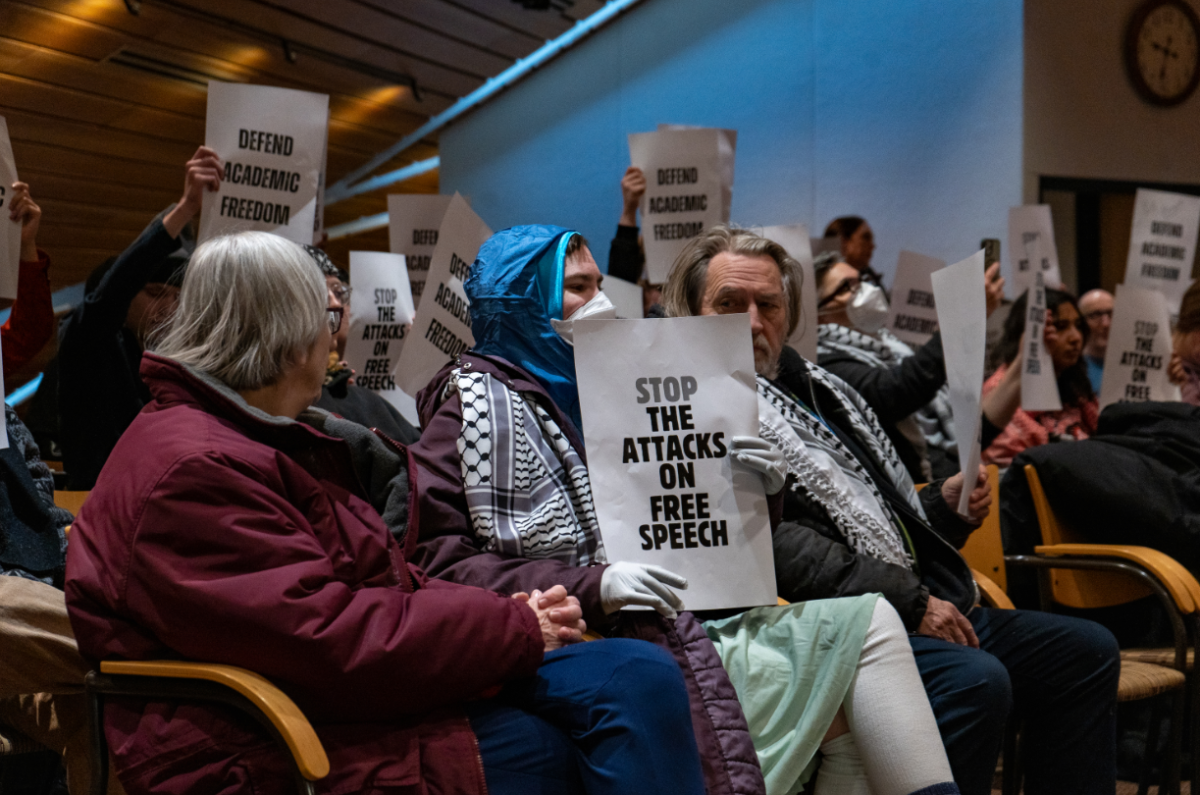

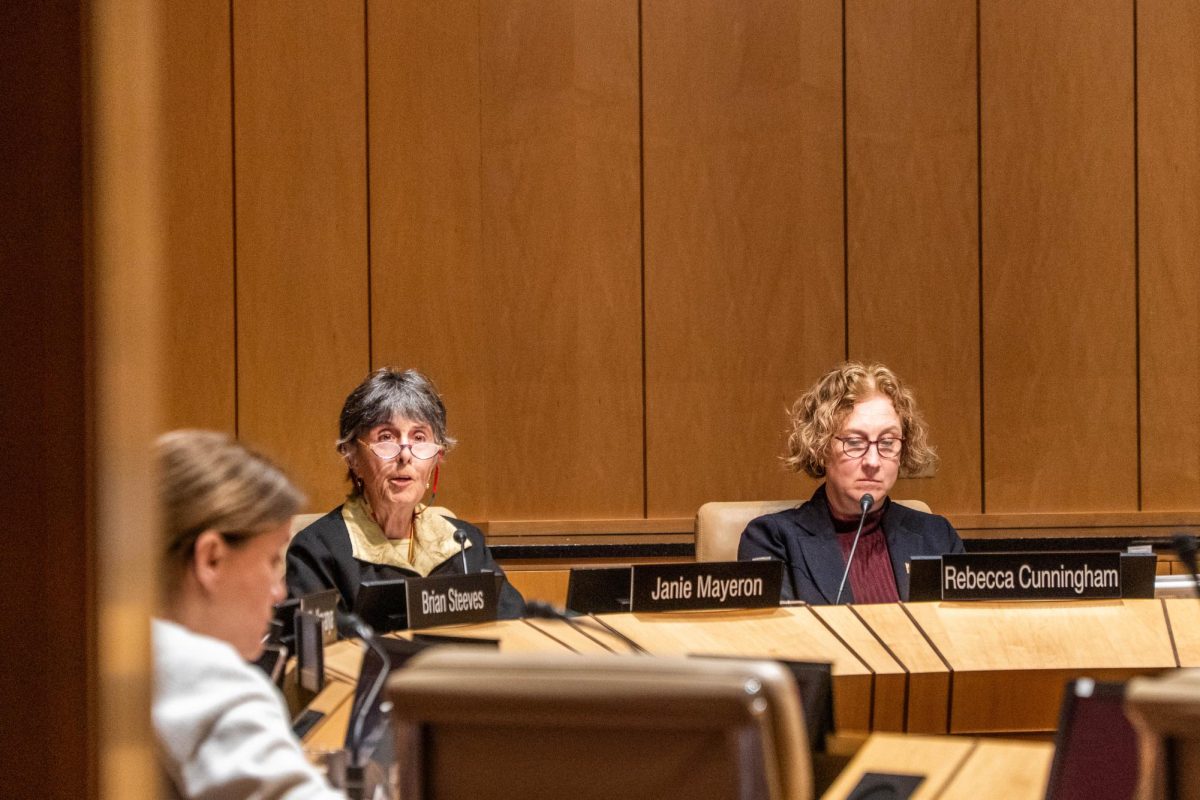
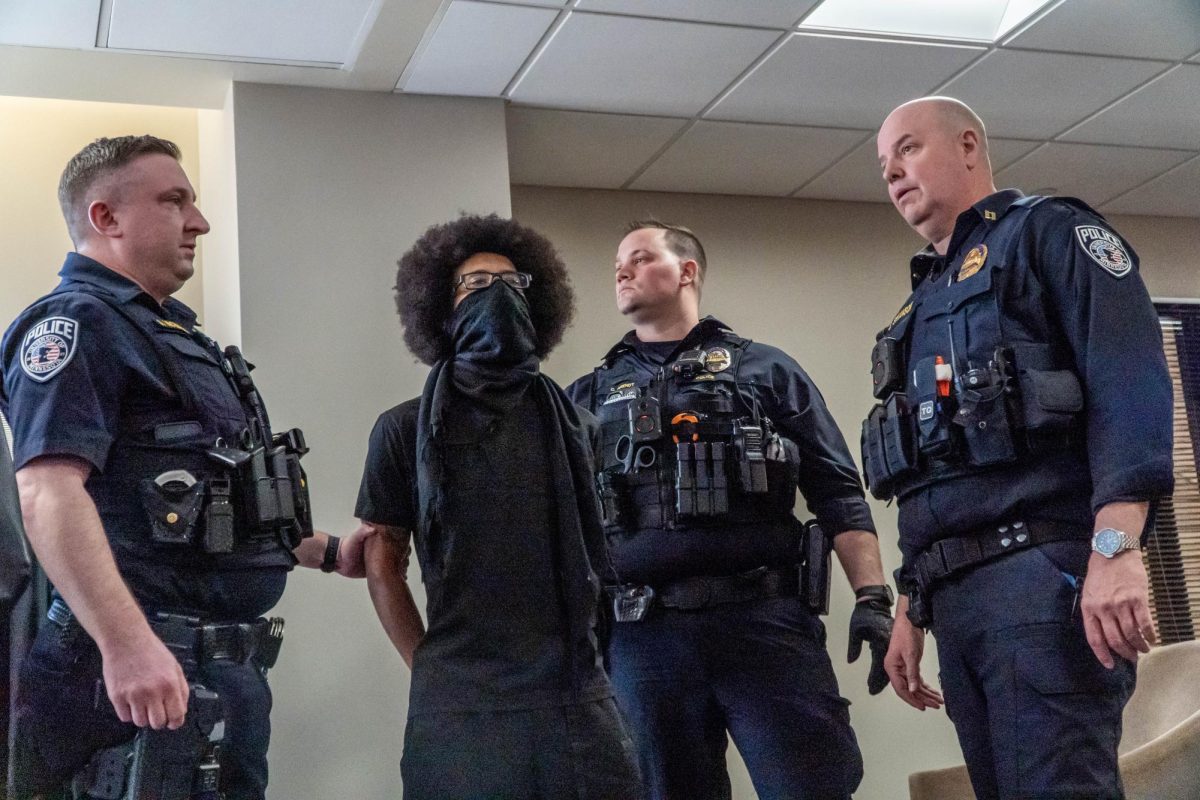

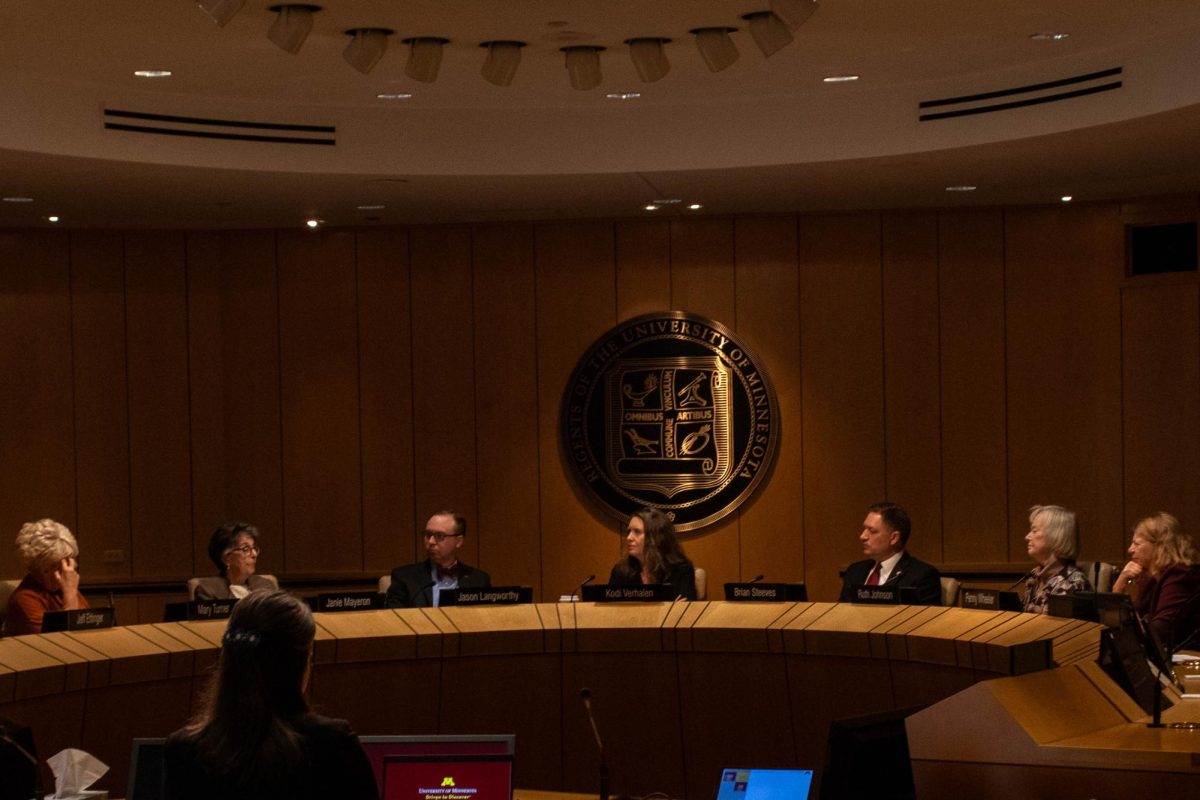
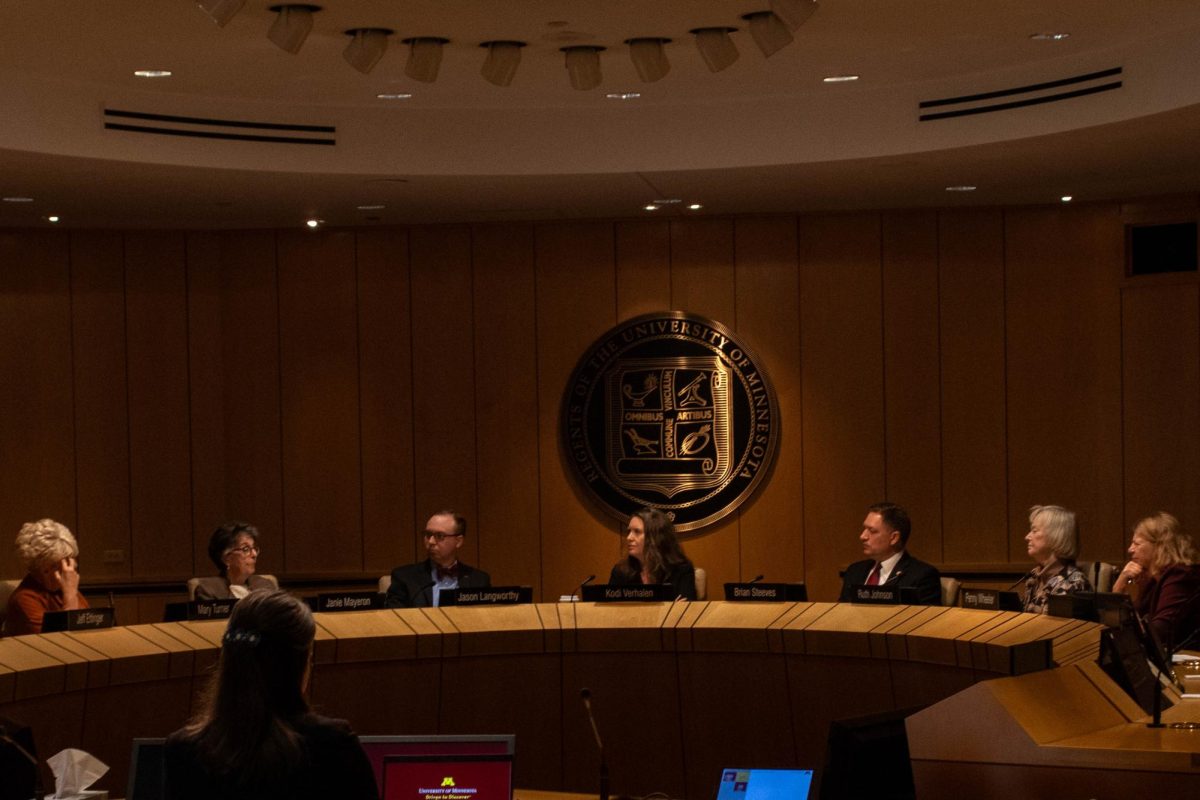












KG
Mar 24, 2025 at 8:16 am
Woods Halley – I have not seen any comment in the Minnesota Daily “claiming that Israel has the right to repeatedly attack and kill tens of thousands of the recent inhabitants of Gaza on the basis of a claim to their territory arising from occupancy of that territory by Jewish people centuries ago ….” I challenge you to cite your reference.
But, I will try to unpack your rather astounding statement and offer some corrections, if I may:
1. The Jews’ have continuously inhabited Israel-Palestine for 3,000 as proven by history, archaeology and DNA. This is a rebuttal to the settler-colonialist theory that claims that the “Palestinians” are the indigenous people and the Jews, the settler-colonialists. Nothing more.
2. Migrations are complex. We see that today, even here in the United States. The Jews who migrated to Israel joined their co-religionists, who had been living in Israel for thousands of years.
3. Over time, many peace offers were offered to the “Palestinians.” All these offers were accepted by the Jews and rejected by the “Palestinians” or their leaders. In 1947—the partition plan; in 1967, Israel’s offer to open peace negotiations with the Arab countries; in 2000, the peace offer brokered by President Clinton. If the “Palestinians” had accepted any of these offers, they would be living today in peace on most of historical Israel-Palestine.
4. Since 2005, no Jews have resided in Gaza. The Hamas Gaza government had a golden opportunity to establish a thriving Palestinian state funded by billions in annual foreign aid from multiple governments. Instead, the Islamist, religio-fascist Hamas regime prioritized building rockets and terror tunnels over schools and factories.
5. The current Gaza war was initiated by Hamas terrorists on October 7, 2023. If Hamas terrorists had not begun the war, those tens of thousands—in Gaza and in Israel–would be alive today. Hamas terrorists are to blame for all the death and destruction on both sides of the border.
Woods Halley – The “step backward” you are talking about is the consequence of relentless propaganda by extremist pro-Palestinian faculty. Why do you not direct your wrath at UMN Faculty for Justice in Palestine that has brought UMN to this impossible situation?
Mike
Mar 24, 2025 at 8:01 am
The protesters have shown time and again why we need institutional neutrality and requiring academics to make clear that they are not speaking in the U’s name when they make pronouncements on matters of public concern.
Woods Halley
Mar 18, 2025 at 4:11 pm
The president of the university has, during the more than 50 years that I have worked here, never before claimed the authority to censor all statements by its ‘units’. This is a big step backward from the tradtions of academic freedom which we have enjoyed. Our university president and her administration have not shown the kind of needed courageous resistance to the federal attacks on free speech in universities which are coming from Washington.
In writing this, I do not mean to fully endorse what every proPalestinian student or faculty member may have said, but
,with Thomas Jefferson, I defend their right to express their views.
With regard to the comments here, a disturbing number of them
cite unsustainable arguments defending the recent behavior of
the Israeli government and armed forces. (Of course they have
the right to state those arguments.) Claiming that Israel has the
right to repeatedly attack and kill tens of thousands of the present inhabitants of Gaza on the basis of a claim to their territory arising
from occupancy of that territory by Jewish people centureis ago
is not convincing to me. Suppose the indigenous inhabitants
of North America were to make such claims on large regions
of the present United States which were taken from them, largely
by force, in the nineteenth century. To avoid global chaos, such
ancient claims should be dropped and borders should be left unchanged. That was part of the global consensus after WWII
which led to the UN and a Pax Americana which is unfortunately
now collapsing.
KG
Feb 22, 2025 at 8:48 am
Dennis, it should be clear from my examples that I am referring specifically to CLA, not CSE. I cited the CSCL, GWSS, and AIS academic units as examples, particularly their statements on Gaza that are prominently displayed on the UMN website. Stay tuned—I’ll also address “groupthink” and “takeover.”
First, the CSCL, GWSS, and AIS statements share a striking and frustrating similarity: each applies the settler-colonialist narrative to Israel-Palestine as their theoretical foundation. As I’ve previously explained, this narrative is demonstrably false when applied to Israel-Palestine. The Jewish people today are living in their ancient homeland, as supported by extensive historical and archaeological evidence.
Second, none of the faculty members from these academic units have disassociated themselves from these statements. It’s reasonable to infer that consent was unanimous, which I would classify as “groupthink” within these academic units.
Third, consider the role of Faculty for Justice in Palestine (FJP) at UMN. This group functions as a political lobbying organization, promoting extreme pro-Palestinian and virulently anti-Israel positions, including BDS. FJP operates in concert within UMN, pushing its agenda under the guise of academic discourse.
Fourth, take the recent unhiring of Raz Segal as CHGS director. FJP already has faculty representation within CHGS, but that wasn’t enough—they aimed for complete control of the center. Their attempt to install Raz Segal, an anti-Israel Israeli and poorly suited candidate, through a non-transparent hiring process that bypassed the CHGS advisory board, demonstrates their intentions. Karen Painter’s candid remark lays this bare: “With Segal, [the departure of supporting scholars and faculty] would be gradual, leaving a shell of a center which would shift from being part of the nexus of the humanities and Jewish studies community to becoming part of the campus’s anti-Israel contingent.” If that isn’t a clear attempt at a “takeover,” I don’t know what is.
Finally, I agree that there are situations where it may be important for UMN to issue a statement. However, institutional neutrality is a sound policy when addressing controversial topics. Entrusting this discretion to our new President seems like a prudent approach.
TA
Feb 20, 2025 at 6:47 pm
D. Hejhal –
Of course you don’t see it as groupthink – it’s easy not to notice when you support the dominant – borderline mandatory -narrative that is being pushed.
Thankfully the rest of us see it clearly.
D. Hejhal
Feb 20, 2025 at 1:44 am
P..S. for KG. Regarding flawed (mathematical) theories or
developments disseminated by people using linkage to
a university to aid credibility is an issue as old as time.
It can be very troubling, but it is completely separate from Institutional Statements, the subject of the BoR resolution;
that’s why I limited my comment to just 1–4.
D. Hejhal
Feb 20, 2025 at 1:20 am
KG,
Since lots of people view these comments, including people not at UMN, I’d like to offer some faculty input. [I do not speak for
UMN.]
1) You say – “Unfortunately, UMN academic units have been overtaken by an extremist pro-Palestinian groupthink that does not hold up to serious academic scrutiny.” This is just complete nonsense re: ‘overtaken’, at least in CSE. I am not aware of any ‘overtaken by groupthink’ in any academic unit here. Strong individual opinions are one thing, ‘groupthink’ quite another.
2) Mr Estes speaks for himself. He does not speak for the university or for his academic unit/dept. He is welcome to speak for himself; he is not entitled to speak for his unit or dept, and, I would guess (expect), he makes no pretense of that. If he does, it is wrong.
3) I hear you on ‘leveraging for propaganda’ purposes. I act
ethically and would wager that, at least in CSE, this type of conflating is quite rare among regular faculty here. (Leveraging
enthusiasm for one’s subject is, however, one of the most valuable things in any university.)
4) Speaking up as a unit if the entire unit is affected professionally by something external may, in fact, be a duty.
The tired yada yada about one minority view or 3 people opting not to vote out of 80 is just that: yada yada. Ie, no excuse. There are standard ways of recognizing non-unanimity. Also, of making it clear that a statement does not speak for ‘everybody’ (here, all of UMN). But to say nothing can often be _very_ wrong. History has shown this.
According to Scripture..
Feb 19, 2025 at 9:07 pm
The following comes from “Got Questions, Biblical Answers.” “According to Genesis 15:18 and Joshua 1:4, the land God gave to Israel included everything from the Nile River in Egypt to Lebanon (south to north) and everything from the Mediterranean Sea to the Euphrates River (west to east). On today’s map, the land God has stated belongs to Israel includes everything modern-day Israel possesses, plus all of the territory occupied by the Palestinians (the West Bank and Gaza), plus some of Egypt and Syria, plus all of Jordan, plus some of Saudi Arabia and Iraq. Thus, Israel currently possesses only a fraction of the land God has promised; the rest of their inheritance likely awaits the return of the Messiah, Jesus Christ. God has given His word that the nation of Israel will never cease as long as the sun still shines by day and the moon and stars still shine by night (Jeremiah 31:35–37).”
KG
Feb 19, 2025 at 11:28 am
Dennis Hejhal: I respectfully disagree with your proposition that “Academic units here have every right to express collective viewpoints on matters ‘within their area of expertise’ and such may be affected by current events.” Unfortunately, UMN academic units have been overtaken by an extremist pro-Palestinian groupthink that does not hold up to serious academic scrutiny.
Take the 2023 resolutions on Gaza from CSCL, GWSS, and IAS as examples. These statements applied the settler-colonialist narrative to Israel-Palestine, but this framework is historically and academically inaccurate. Jews have maintained a continuous presence in the land of Israel, even following their exile by the Romans. A wealth of historical and archaeological evidence supports this, including Benjamin of Tudela’s 12th-century travelogue, which documented dozens of Jewish communities in the region. Also, in 1937, the British Peel Commission estimated there were 15,000 Jews living in Israel-Palestine in 1850. Recently, the discovery of a 14th-century synagogue further underscores this deep historical connection.
Extremist UMN professors are behaving as partisan political activists in both the public sphere and the classroom. This misuse of their academic positions must stop, and they must cease leveraging UMN’s name for propagandistic purposes.
Let’s consider a current example: Nick Estes of IAS, a member of UMN Faculty for Justice in Palestine, is serving as a Theme Editor for an upcoming special issue of the Journal of Architectural Education (JAE 79:2, expected publication Fall 2025). This issue is intended to glorify Hamas’s massacre and genocide against Israelis as “resistance.” First, Nick has no expertise in architecture. Second, he has adopted the false settler-colonialist narrative regarding Israel-Palestine, but he lacks credibility as an “expert.” His use of UMN’s name in this context tarnishes the university’s reputation and undermines its academic integrity.
So, Dennis, what is IAS, CLA, or the UMN Senate going to do about Nick Estes? What would your response be if a faculty member without expertise was promoting a deeply flawed mathematical theory under UMN’s name?
I would like to believe that you still care about UMN’s reputation. If academic units and the University Senate cannot exercise discipline and maintain intellectual standards, then the Regents and the President will need to step in. UMN is a great university—let’s work to keep it that way.
Dennis Hejhal
Feb 18, 2025 at 2:21 pm
This MnDaily article on the BoR academic freedom matter had a way of chiefly highlighting some rather well-behaved protesters. (Watch the video recording! It is available at the Regents’ website for anyone to see
& scroll through. Academic freedom discussion begins around marker 17.00; for about 40 minutes.)
Sometimes, at this university, diverse groups of people actually have shared concerns about what is right. Gaza & Divestment stuff are not the only issues here. Hello!
The University Senate voted 122-8 on Dec 5th to approve a draft UM policy concerning Position Statements to be presented to the Regents. It was a product of long work by the Academic Freedom & Tenure Committee. About 1 week prior to the Feb 14 regents meeting, the proposed *Regents’* Resolution on Institutional Speech basically undercutting that 122-8 vote was abruptly sent to the Senate with, what I understand, was no explanation. There is a question of propriety here. This is why, within a matter of like 2 days prior to Feb 14, a petition to the Regents signed by over 400 university members [prior to cut-off time] — including many tenured faculty and multiple department heads (and at least one former dean) — got sent to the BoR prior to their Friday meeting.
Regent Gulley is correct. Use of a bulldozer was proposed. The Board of Regents rightly decided to have further discussion & deliberation on this. They invite input from the U community. Regent Chair Mayeron stressed this.
To me, it was obvious that the proposed regents’ resolution was not
ready for prime-time. (This university deserves more than a bulldozer.)
Academic units here have every right to express collective viewpoints on matters *within their area of expertise* and such may be affected by current events. (Hint: the date is now *after* Jan 20.)
Susan Spiegel Pastin
Feb 18, 2025 at 12:33 pm
I understand the difference between speaking for the university as a whole, and speaking for a department or an individual. The latter should absolutely be protected – In the name of both academic freedom and free speech. I think Regent Robyn Guller has a point about using a scalpel, not a bulldozer.
I am Jewish, and I absolutely support Israel’s right to exist as a Jewish homeland. But I also support the right of Palestinians to protest in support of their own homeland.
To me, Hamas, Netanyahu, and Trump are thuggish, authoritarian brothers under the skin. If you fight for free speech, remember that free speech applies to all sides, not just your side.
strategy
Feb 18, 2025 at 12:01 pm
Protesters: please consider that when you disrupt BoR meetings, the live-stream is paused and the transcript is suspended. This causes accessibility issues for everyone who is not physically in the meeting. Try to understand that there are always people watching, many more than show up to the physical meeting.
Protesting like SDS does is also a great way to get yourself arrested. No matter what you think or support, your protest should not cause harm to others or yourself.
KG
Feb 18, 2025 at 9:41 am
The protesters who disrupted the Board of Regents meeting were not advocating for academic freedom. A quick look at the accompanying photo shows they were extremist pro-Palestinian supporters enabling terrorism. Wearing masks and keffiyehs, they blatantly signaled their support for the Hamas terrorist massacre in Israel on October 7, 2023—just as they did during their previous pro-terrorist disruptions on campus.
These enablers of violence are now worried that UMN Faculty for Justice in Palestine (FJP) and Students for Justice in Palestine (SJP) will face limitations in spreading their extremist propaganda on campus. Remember the false and distorted faculty statements from CSCL, GWSS, and IAS on Gaza in 2023? Those weren’t academic discourse—they were crude, pro-Hamas propaganda that denied and erased the Jewish people’s historical and ancestral connection to Israel.
Recall the encampments and occupation of Morrill Hall, or the disruption of last year’s commencement ceremony. This is their version of “academic freedom”—a guise for antisemitism, intimidation, and threats against Jewish and pro-Israel students. Remember the incident in June, when Hillel’s windows were shot out? Their actions and rhetoric continually disrupt and endanger campus life for everyone else.
Would these individuals be rallying for “academic freedom” if the white supremacist KKK were involved? Of course not.
We reject their version of “academic freedom.” Let Cunningham speak for UMN. Everyone else—sit down and let the university focus on what matters. The vast majority of us at UMN want to teach, study, and conduct meaningful research without the chaos and extremism these protesters bring.
Not on University's dime
Feb 18, 2025 at 9:06 am
A relatively small group holding radical or controversial ideologies cannot be allowed to speak for the University. There are plenty of ways to let others know what you are thinking. You do not get to use the official channels of the University as your soapbox.